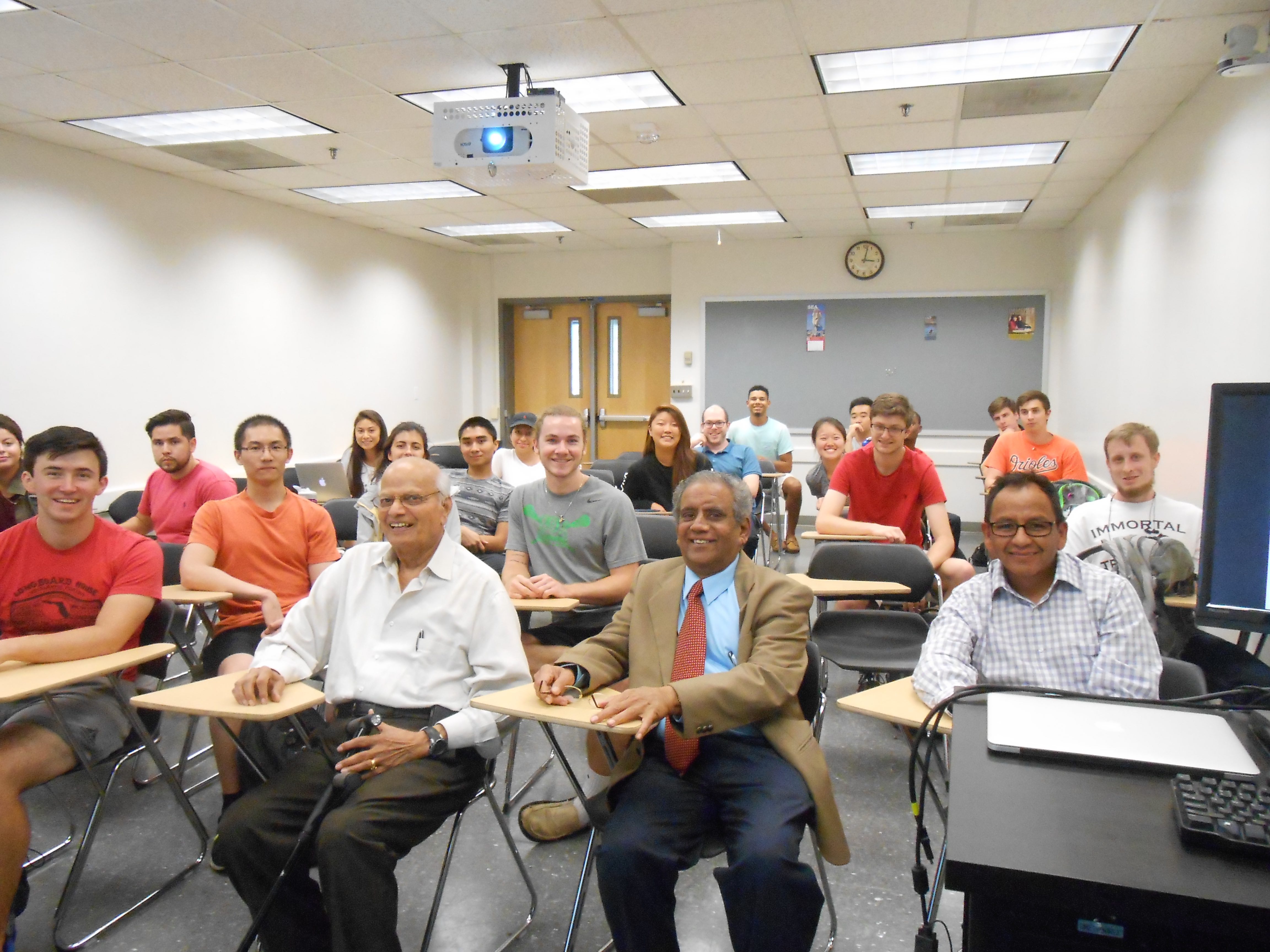For more than 20 years, IFPRI has been working with the University of Maryland (UMD) to strengthen the capacity for research and analysis of food security issues—both locally and globally. IFPRI’s efforts focus on improving the analytical skills of students in understanding food policy issues. A senior researcher from IFPRI presents a set of lectures on food security and policy in a core course offered by Professor Prabhakar Tamboli at UMD’s Department of Environmental Science and Technology titled “International Crop Production—Issues and Challenges in the 21st Century.”
The undergraduates in the course are taught to use analytical tools to examine food security and agricultural issues and policies. One of these methods focuses on social entrepreneurship (SE). Social entrepreneurs combine innovative ideas from individuals with investments from public, private, and civil society organizations, synthesizing them to create new approaches to hasten efforts alto reduce poverty and hunger. The SE approach helps to build capacity for addressing food policy issues at various levels across the public, private, and NGO sectors using case studies on topical policy problems (see, for example, Case Studies: Food Security in Eurasia).
Each week during the course, an expert presents on various themes such as soil degradation, environment, agricultural productivity, and nutrition. This gives students a well-rounded perspective on food security issues. While learning the SE approach, students identify policy problems and develop solutions in context-specific scenarios. Each student is assigned a country for which they identify the key food security challenges and map them against national income, population, and demographics. Students also prepare Food Balance Sheets and identify the key constraints in increasing food security.
Composed of students from multiple disciplines, the class allows an exchange of ideas on food security from many different perspectives, including agronomy, soil science, population, engineering, economics, public policy, political economy, and sociology. As the course progresses, students present their progress in analyzing constraints and challenges facing their countries. Finally, students present a strategy paper for the country of their choice, applying the concepts learned during the course. The student with the best presentation and report is recognized.
Grounded in both theory and practical insights, the course provides a unique perspective to students who will one day be solving problems as social entrepreneurs. It helps to develop a capacity to find innovative and practical solutions to challenges for food systems operating in resource-constrained environments. The course also helps students to understand how ideas can be implemented in dynamic policy contexts, considering the interests of multiple stakeholders. This activity is an example of the social entrepreneurship approach to capacity strengthening used by IFPRI in various contexts. For more information, please contact Suresh Babu (s.babu@cgiar.org).
Suresh Babu is a Senior Research Fellow and Head of Capacity Strengthening at IFPRI.







